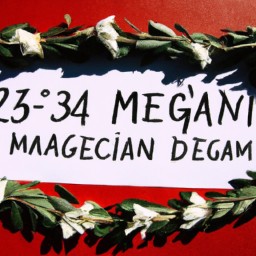December 25 is a special day for many people around the world. It is the day that Christians celebrate the birth of Jesus Christ and the beginning of the Christmas season. But did you know that December 25 was also an important holiday for pagans? This article will explore the Pagan holiday celebrated on December 25 and its history. We will look at how the Pagan holiday has evolved over the centuries and how it is celebrated today. We will also discuss how the Pagan holiday is related to Christmas and what it means for Pagans today.
December 25th is a special day for many people around the world. It is the day when Christians celebrate the birth of Jesus Christ. But what many people don’t know is that December 25th was a pagan holiday long before Jesus was born. In this article, we’ll take a look at the pagan origins of December 25th and how it became the special day it is today.
What Is December 25th?
December 25th is a day of celebration for Christians around the world. It is the day that celebrates the birth of Jesus Christ. It is a day of joy and festivity, with people gathering to exchange gifts, enjoy meals, and celebrate the birth of the son of God.
The Pagan Origins of December 25th
December 25th has been celebrated since ancient times, long before Jesus was born. In fact, it is thought that the ancient Romans celebrated the winter solstice on this day. The winter solstice is the day when the sun is at its lowest point in the sky and marks the beginning of winter.
The Romans celebrated this day with a festival called Saturnalia, which was a week-long celebration of games, feasting, and gift giving. The festival was dedicated to the god Saturn, the god of agriculture and time.
The ancient Celts also celebrated a festival on December 25th called Yule. Yule was a mid-winter festival that celebrated the rebirth of the sun. It was a time of feasting, drinking, and celebrating the coming of the new year.
Christianity and December 25th
When Christianity began to spread throughout Europe, many pagan holidays were absorbed by the Christian religion. December 25th was no exception. In the 4th century, the Church decided to move the celebration of Jesus’ birth from January 6th to December 25th. This was thought to have been done in an effort to make Christianity more appealing to pagans.
Since then, December 25th has become a day of celebration for Christians around the world. It is a day that celebrates the birth of Jesus and has become a day of joy and festivity.
Conclusion
December 25th is a special day for many people around the world. It is a day of celebration for Christians, but it has its roots in pagan holidays. The ancient Romans and Celts celebrated festivals on this day to mark the winter solstice and the rebirth of the sun. Christianity eventually adopted December 25th as the birthday of Jesus and it has been a day of celebration ever since.
In conclusion, December 25th has long been a day of celebration and remembrance. It has been celebrated by many cultures and religions over the centuries, and has become a day of joy and reflection for many people around the world. Despite its pagan origins, December 25th is now a day of great significance for Christians, as it marks the birth of Jesus. For those who do not celebrate Christmas, December 25th is still a special day, providing an opportunity to celebrate the winter solstice and reflect on the changing of the seasons. No matter how we choose to celebrate, December 25th is a day to be cherished. December 25th is a day that unites people of all backgrounds, religions, and cultures, and provides a moment of peace and joy in a world that is often divided.





